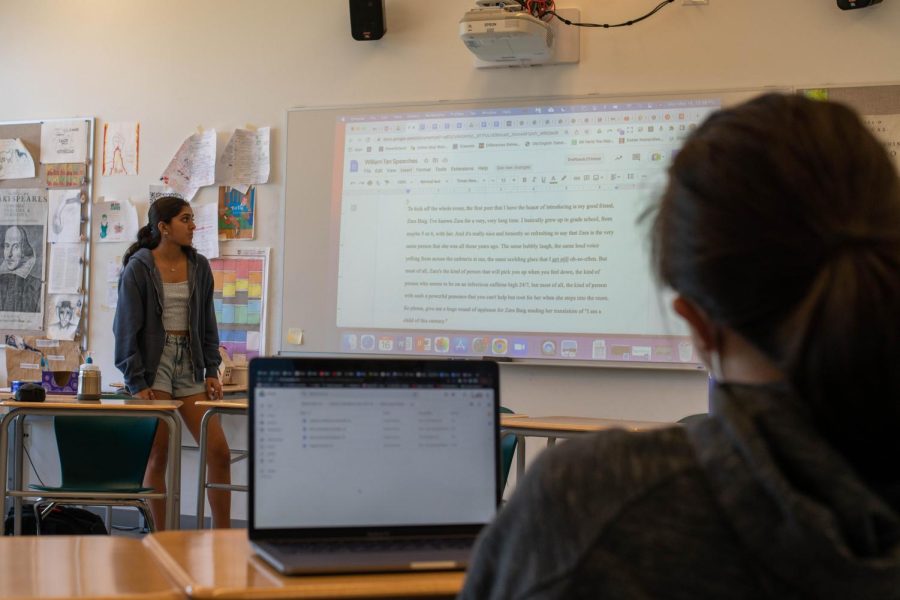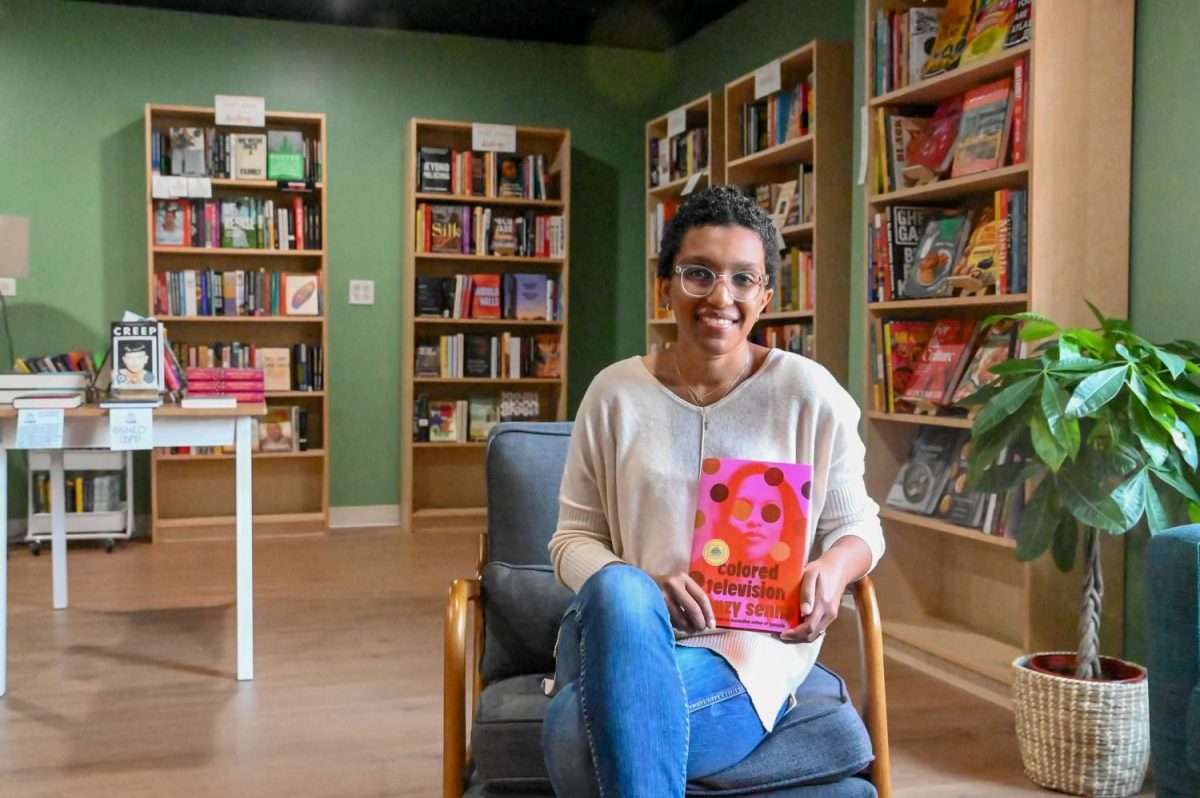Club encourages students to practice translation, awareness
Junior Sara Kumar discusses literary translation for the “Ouroboros Review” as part of literary translation club.
May 24, 2022
After a flight to another country, English teacher Maja Teref stepped outside an airport and encountered a sign at a nearby construction site. In large letters, “work in progress” covered it, causing her to realize something new: in the country, “work in progress” paralleled the term “under construction” used in the United States.
For Ms. Teref, this contrast parallels what she does for U-High’s Literary Translation Club, where highlighting different ways of conversing and thinking improves her awareness of other cultures.
Ms. Teref is not the only one with improved cultural awareness. The Literary Translation Club has influenced students to advocate for translators and learn how people of different backgrounds express themselves through various, nuanced languages.
One of these students is senior Penelope Huang, the club’s leader, who has aided in composing the Ouroboros Review, U-High’ literary translation journal, for 2020 and 2021. She says the club has improved her awareness of certain aspects of languages from different cultures.
“It definitely made me appreciate how nuanced each language is,” Penelope said.
According to Ms. Teref, the Literary Translation Club has advocated for raising the awareness of translators who have, historically, been invisible. These creators include women of color and people in the LGBTQ+ community who have translated works in countries where they are persecuted.
Ms. Teref encourages her students to practice cultural awareness by asking themselves questions as they translate works into English.
“Are we making the poems look too American? Are we erasing the original poet’s identity? Are we putting way too much of ourselves into it, or are we honoring what’s on the page?” Ms. Teref said.
Senior Maya Mubayi said the Literary Translation Club has influenced her to learn how different cultures express themselves through languages unfamiliar to her, like Hindi.
Maya said the club has improved her own cultural awareness.
“I can’t read the language great,” Maya said. “So sometimes I ask my parents for help because they can read it and speak it fluently. That’s definitely been fun.”
“It definitely has improved it a lot,” Maya said. “I like getting used to the things that we normally wouldn’t think about saying in English. So learning how other languages speak and how they talk has really opened my eyes to the ways that people talk in other countries.”
From helping Ms. Teref understand how she uses translation in her life, like reading foreign construction signs, to aiding Maya in learning how others talk, the Literary Translation Club has improved people’s cultural awareness and ability to discern the nuances of languages. To help advocate for marginalized groups and promote learning, Ms. Teref encourages her students to continue having and practicing cultural awareness, including translating less represented languages.
“It’s great to translate from German and French,” Ms. Teref said. “But what about Swahili? What about Tibetan? The languages of indigenous peoples? When you translate them into English, and if you publish them in America, you give them a voice. They start to exist for you.”












